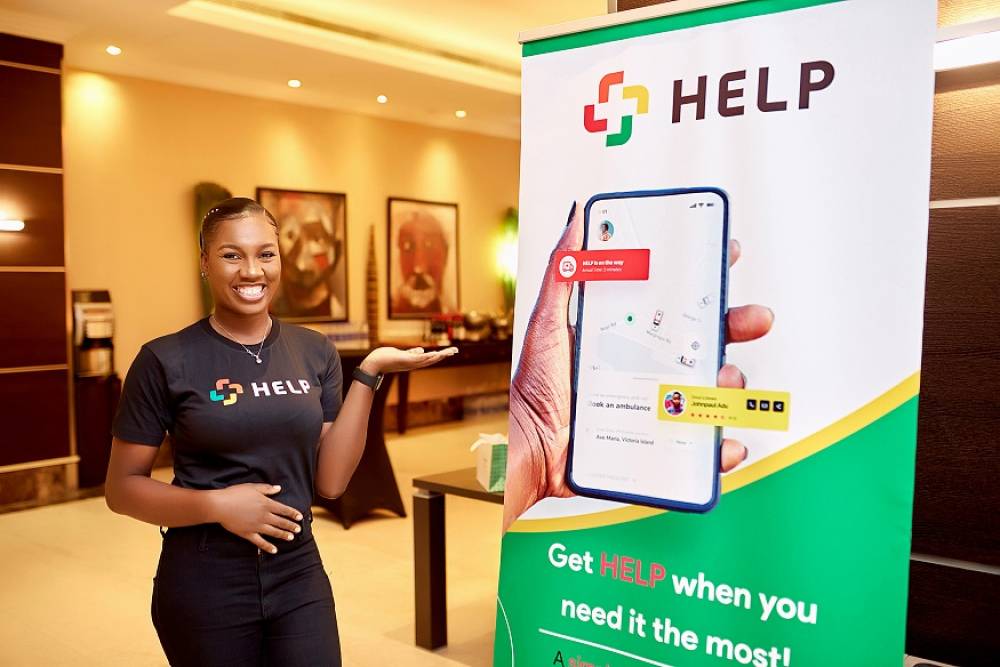
A logistics company based in Nigeria launches HELP to provide ambulance services using an Uber-like model
A logistics company based in Nigeria launches HELP to provide ambulance services using an Uber-like model
A chorus of "Uber for ambulances" could be heard echoing around the room as HELP, an acronym for Health Emergency Linkage Portal, announced the launch of its GPS-based mobile application and emergency healthcare hotline on October 5, 2021.
With a mobile application that allows users to request an ambulance in an emergency situation or schedule a medical appointment in advance, the healthtech and logistics company hopes to provide high-quality emergency health care services.
It is a fundamental human right to have access to health care that is both adequate and affordable. It is regrettable that access to high-quality healthcare is a privilege in the vast majority of developing countries, including Nigeria. In addition, obtaining medical care can be a difficult task. Among the many problems plaguing the country's healthcare system are slow response times to emergency cases, inadequate health infrastructure, and a shortage of health workers, to name a few. According to Deji Faborode, co-founder and CEO of HELP, this is the gap that they are attempting to bridge one step at a time through various initiatives.
"A great deal can be done, and we are only scratching the surface of Nigeria's healthcare solutions at this point. Things are not working as effectively as they should as a result of misaligned objectives. In the event of a health emergency, our citizens are terrified for their lives because they have no way of knowing what will happen. Existing emergency response structures are unable to keep up with demand. This was the spark that ignited the idea for HELP. Another gap that we hope to close is the feeling of hopelessness that people experience in emergency situations."
According to him, the overall goal is to develop interconnected systems to supplement existing ones in order to establish a fully functional and unified body of ambulance service providers.
When Deji Faborode (CEO), Yewande Alebiosu (COO), Victor Iwenya (CTO), and Tomiwa Ogunbona (CPO) first discussed the idea of leveraging technology to improve interconnectedness, create a collaborative healthcare ecosystem, and break down silos, they were met with a blank stare.
The HELP project, which aims to improve access to emergency care, was launched 23 months ago.
What it does and how it works
The HELP mobile application is currently available on the Google Play Store for Android users and will be made available on the Apple App Store in the near future.
People and businesses can register, create accounts, and then receive an OTP to confirm their registration. Once they have registered, they will be able to search for and access ambulances in their immediate vicinity. The application also contains an interactive health-care facility navigator, which serves as a directory of hospitals and pharmacies in the user's geographic area.
External partners are divided into two categories at HELP: Service Partners and Client Partners. Service partners on the HELP platform include hospitals, health facilities, and private ambulance owners from all over the country, according to the company. Client partners include health maintenance organizations (HMOs) and corporate organizations that enroll their members in health insurance plans.
The subscription plan for Client Partners is divided into three tiers: Gold, Silver, and Bronze. Each tier has a different level of service. Each one is different, depending on the size of the ambulance ordered and the equipment available for the service being requested. There is a base price for each ambulance type, but prices vary depending on the distance traveled and the amount of time spent in the ambulance.
Within the app, each user has their own wallet, which they can use to make payments to other users. This eliminates the need for re-entry of financial information into the system.
When you use the HELP app, there is a section where you can enter details about the emergency so that paramedics in the ambulance have all of the information they need. The HELP app includes a feature that allows users to share information about the driver, trip history, and the hospital that dispatched the ambulance with their loved ones through the use of the app. Tracking and recording of travel routes is possible through the app's integrated geo mapping system..
In addition to the application, HELP maintains a hotline, 0-700-HELPSTATION, for use in emergency situations where mobile networks are unavailable. The code can be used to access the HELP service by anyone, which is unusual.
In response to a call for comments, members of the audience shared their own personal experiences with loved ones who died as a result of delayed emergency response times and a lack medical assistance during times of crisis. All of these problems are exemplified by the pillars of rapid response, accessibility, and coordination upon which HELP is designed to function.
In Conclusion
When it comes to future investment and expansion plans, Faborode explains that while the startup is open to social grants and funding, the company's primary focus at the moment is on gaining traction, spreading the word about the company's services, and, most importantly, providing an excellent experience for users.

